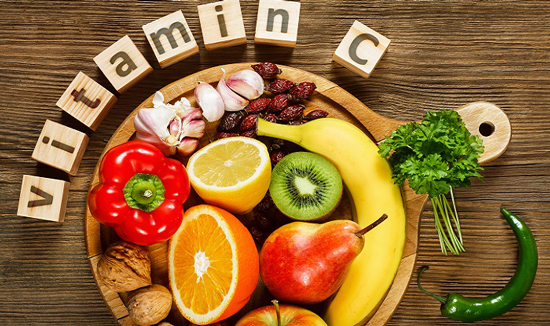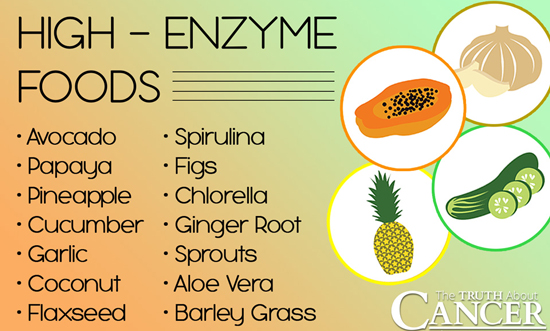31 Powerful Medicinal Plants and Supplements for Treating and Preventing Cancer Naturally (1)

Nutritional and cancer fighting supplements are an integral part of any comprehensive cancer treatment plan but, despite claims of miracle cures on the Internet, no supplement alone eliminates cancer. Yet supplements play a very important role in cancer treatment, because cancer is continually trying to outsmart whatever you are doing, and supplements can help you to attack it from multiple angles. To do this, you’ll need to use a variety of targeted anti-cancer medicinal plants and supplements, which you and your doctor will want to rotate on a regular basis.
Harness the Healing Power of Supplements
Supplements serve a fourfold purpose in cancer treatment: to detoxify your body, provide it with foundational nutrients, to balance and augment your immune system function, and target and kill circulating tumor cells and/or stem cells. You’ll want your doctor to use the lab tests that are described later in this section to determine exactly what supplements you need. If you have cancer, in addition to the few core anti-cancer supplements that recommended for everyone, you’ll want to find out what supplements will eliminate the circulating tumor cells (CTCs and CSCs) because chemotherapy and radiation can’t kill them and they are responsible for over 95% of all metastases.
It is beyond the scope of this article to describe all of the nutrients and cancer fighting supplements that you may need to get well or remain well, so you will find below the kinds of supplements that help to prevent cancer, modulate the immune system and which have cancer-killing effects upon CSCs, CTCs and tumor cells. You’ll also find discussed some core anti-cancer supplements that recommended to every single one of the patients and which should form the foundation of any anti-cancer regimen. These strengthen and heal the body, but also have cancer-killing properties.
Taking supplements and medicinal plants for cancer won’t just help you to feel better – it will literally save your life, which is why anti-cancer vitamins and nutrients need to be a part of your daily regimen, just like eating your spinach and flaxseeds. Even if you choose the conventional route of treatment and do chemotherapy or radiation, you’ll still need to take supplements for cancer to support and heal your body, because no chemotherapy drugs can eliminate CTCs and CSCs.
There are literally hundreds of cancer fighting herbs and supplements, but not all of them will work for your particular type of cancer or situation, so you and your doctor will want to do testing to find out which ones you need. Testing is also important because certain cancer fighting supplements are synergistic in their effects; meaning, they are more powerful when combined with other types of supplements. So don’t just take random amounts of different supplements, because the ones that you think you need may not be the ones that will help you and they may in fact harm you. RGCC testing is a good way to find out exactly what natural anti-cancer medicinal plants, supplements and vitamins your CTCs and CSCs will respond to.
Finally, if you have cancer, it’s a good idea to consult with your doctor before taking any of the cancer fighting supplements recommended in this article, to make sure that they aren’t contraindicated for your particular situation and don’t interact with other medications or supplements that you may be taking.
Getting Your Nutrient Levels Tested

Most people with cancer have nutritional deficiencies, so in addition to RGCC testing (which tells you what specific anti-cancer medicinal plants your cancer will respond to), you’ll also want to do testing to determine what nutrients your body needs to rebuild and repair itself. SpectraCell Laboratories is one great lab used at the Center for New Medicine for nutritional testing, and which your doctor can also use to create a foundational nutritional protocol for you. SpectraCell measures the function of 35 nutritional components in your body, including vitamins, antioxidants, minerals and amino acids. You can have your blood drawn at your local lab and then mailed out to the SpectraCell lab for analysis and interpretation.
NutrEval by Genova Diagnostics is another lab test that assesses your nutritional status, and like the SpectraCell, it can be done at your local lab. In addition, NutrEval evaluates your gastrointestinal and detoxification functions. Testing to find out what anti-cancer vitamins and nutrients your body needs is so important because no two people have the same nutritional requirements, and neither do they respond well to the same brands or types of supplements and medicinal plants for cancer.
You can do the SpectraCell and many of the other types of tests on your own, but like other aspects of treatment, it’s best to work with a knowledgeable integrative cancer doctor who can interpret the results and customize a supplement plan for you.
The Four Core Anti-Cancer Supplements
The following five supplements should form the basis of any cancer prevention or treatment plan, along with any other supplements indicated by RGCC, nutritional and other types of lab testing. You can generally take the following five cancer fighting vitamins and supplements safely without a doctor’s prescription or needing to test. However, you’ll want to rely on test results and your doctor’s recommendations for the other anti-cancer supplements described later in this article, to determine whether those supplements and medicinal plants for cancer are right for you, and in what amounts.
1. Vitamin C
Vitamin C may be one of the most powerful immune-boosting anti-cancer supplements in nature. Oral Vitamin C has different effects upon the body than high-dose, intravenous Vitamin C. At lower dosages, Vitamin C boosts immune function. At higher doses, it literally kills cancer cells by producing lethal hydrogen peroxide inside of tumors, which causes them to self-destruct. This relationship between Vitamin C and cancer is what makes it one of the best vitamins for cancer.
Oral Vitamin C is a fantastic supplement for cancer highly recommended to everyone, for both cancer prevention and treatment, because of its potent immune-enhancing properties. The late Linus Pauling, who was one of the most influential biochemists in history and a two-time Nobel Prize winner, was among the first scientists to prove that high doses of Vitamin C are lethal to cancer. In his book Cancer and Vitamin C, he shares detailed accounts of cancer patients who experienced significant increases in their life expectancies, including some complete remissions, as a result of high dose Vitamin C treatments.

Today, most integrative doctors using vitamins and medicinal plants for cancer believe that the US Recommended Daily Allowance (RDA) for Vitamin C is too low, at 500 mg daily. The USRDA guidelines are based on the minimum amount that’s needed to prevent scurvy and are not what the body needs to function optimally – never mind a body that is fighting cancer. Most people need anywhere from 1,000-12,000 mg of Vitamin C daily. When it comes to Vitamin C and cancer, the average amount recommended to patients is about 8,000 mg. If you just want to prevent cancer, taking 4,000 mg daily is recommended.
One type of Vitamin C that you may want to try is liposomal Vitamin C, which is encased in phospholipids, or fats that come from sunflower lecithin. The phospholipids increase your body’s ability to absorb and utilize the vitamin. Liposomal Vitamin C is more expensive than other types of Vitamin C for cancer, but because it is more bioavailable, your body absorbs and utilizes more of it so you don’t need to take as much.
Many Vitamin C products are made from GMO corn; are not necessarily bioavailable to the body, and/or cause gastric distress because they contain no buffers such as calcium or magnesium, so you’ll want to avoid these. Vitamin C can be safely taken in large doses; the body will simply eliminate what it doesn’t need. Regarding Vitamin C and cancer, diarrhea is, for the most part, the only side effect of too much Vitamin C. It is generally not contraindicated for any reason, although you may want to ask your doctor to make sure that it doesn’t interfere with any other supplements or medications that you may be taking.
2. Vitamin D-3
Vitamin D-3, which is the most bioavailable form of Vitamin D, is one of the most powerful anti-cancer vitamins in nature. Research on Vitamin D and cancer shows that it positively influences over 200 genes in the body, reduces inflammation, inhibits the cancer cell’s growth and replication cycle, inhibits new tumor blood vessel growth, and induces cancer cell self-destruction. It also promotes the growth of healthy cells.
Nearly all of us could benefit from taking a Vitamin D-3 supplement. Usually patients receive anywhere from 5,000 to 15,000 IUs daily, depending on their test results. It’s usually safe to take a low dose of Vitamin D without getting tested, but regarding Vitamin D and cancer, it’s ideal to have your doctor test you to find out what your current vitamin D levels are, so that you know exactly how much you need. You want your results to be in the top half of the testing results range, or at about 50-70 ng/ml. If they are less than that, then this means that you need supplemental Vitamin D-3 as one of your cancer fighting supplements. Vitamin D is a very powerful nutrient that acts more like a hormone rather than a vitamin in the body. It is very hard to overdose on Vitamin D, as most people are very deficient in this nutrient, but there may be a few rare situations for which its use is contraindicated. When in doubt about Vitamin D and cancer, check with your doctor before taking it.
3. Parent Essential Oils (PEOs)
The third type of supplement that you’ll want to add to your core regimen of cancer fighting medicinal plants and vitamins is essential fatty acids (EFAs) from Parent Essential Oils (PEOs). PEOs are omega-6 and omega-3 essential fatty acids from linoleic and alpha-linoleic acids. Researcher and PEO developer Brian Peskin, who was the first to coin the term Parent Essential Oils, believes PEOs to be the only whole, unadulterated, fully functional forms of the only two essential fats that your body demands. PEOs oxygenate the cells and play an important role in healing cell membranes. When your cell membranes are strong and healthy, your cells become more efficient at uptaking nutrients and expelling waste. They are able to receive more oxygen, which helps your normal cells to remain healthy, while encouraging the destruction of the cancerous ones. An insufficient amount of PEOs in your diet can reduce the amount of oxygen in your cells sufficiently to cause cancer, so you’ll want to make sure to get your EFAs from PEOs.
It is recommended to take omega-3 EFAs from supplemental alpha-linoleic acid and omega-6 EFAs from linoleic acid, which come from foods such as walnuts, hazelnuts, sesame seeds and apricot oil. These can also be purchased in supplement form where you shop for other natural vitamins and medicinal plants for cancer. EFAs produce no side effects and are very healthy for the body, since they are a component of food.
4. Pancreatic Proteolytic Enzymes

Pancreatic enzymes are recommended as an anti-cancer supplement to everyone for several reasons. First, many people have what’s called pancreatic insufficiency, which means that their bodies can’t produce sufficient amounts of pancreatic enzymes, due to stress, toxins, a bad diet, and other factors. You can find out whether your body is producing sufficient enzymes by doing a couple of simple blood and/or stool tests. The blood tests that your doctor will want to order for you are called amylase and lipase, which are two types of enzymes produced by the pancreas and that show how well your body is producing digestive enzymes. Your doctor may also want to order a stool test that measures elastase, which is an enzyme that digests protein and is another useful measure of pancreatic function.
If you find out that you have pancreatic insufficiency, supplemental enzyme products can help your pancreas to digest food and keep it from becoming overtaxed by a poor, protein-heavy diet. Secondly, and perhaps more importantly, pancreatic enzymes are useful for stripping cancer cells of fibrin, which is an outer coating that shields them from the immune system. Enzymes such as trypsin and chymotrypsin, which are found in some pancreatic enzyme products, when taken on an empty stomach, help to break up this fibrin so that your immune system can more effectively detect and destroy the cancer with the help of this cancer fighting supplement.
The benefits of pancreatic enzyme therapy in cancer treatment were first recognized in the early 1900s. A Scottish embryologist named John Beard proposed that pancreatic proteolytic enzymes were the body’s main defense against cancer and that taking supplemental enzymes could kill cancer cells. His theory and evidence for the success of enzyme therapy are published in a monograph entitled The Enzyme Therapy of Cancer. Dr. Beard witnessed many thousands of his patients and clients heal from late stage cancers as a result of taking pancreatic enzymes, even without additional cancer fighting medicinal plants.
Pancreatic enzymes are a very powerful anti-cancer supplement, useful for both cancer prevention and cancer treatment, but the amount that you’ll want to take depends on whether you are trying to prevent cancer or beat it, and just like all anti-cancer medicinal plants and vitamins, not all pancreatic enzyme products are created equal. Look for broad-spectrum proteolytic enzyme formulations that contain enzymes such as pancreatin, bromelain, papain, lipase, amylase, trypsin and alpha chymotrypsin. Pancreatic enzyme dosing is an art, so it’s best to consult with your integrative doctor to determine what products and amounts are best for your particular situation. Pancreatic enzymes are very safe and generally not contraindicated in most situations, if taken according to product or your doctor’s guidelines.
Read the second part of the article
yogaesoteric
February 9, 2018
